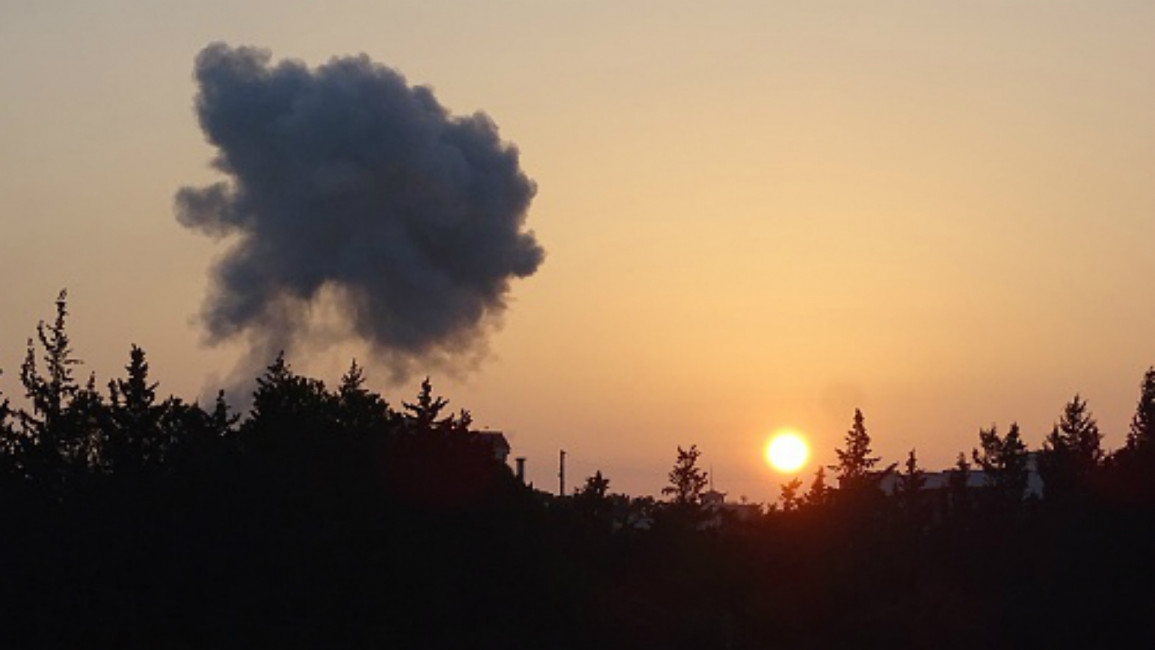Russia steps up Syria airstrikes despite 'withdrawal'
Russian jets on Friday flew in support of Syrian government troops in an offensive to recapture the historic town of Palmyra from the hands of the Islamic State group, just days after Russian President Vladimir Putin ordered a partial withdrawal of Moscow's military from Syria.
Activists who monitor the Syrian conflict reported intensive air raids in Palmyra and its suburbs.
In Moscow, a Russian defence ministry official confirmed the Kremlin's air force was supporting the Syrian offensive to retake Palmyra.
Lieutenant General Sergei Rudskoi said Russian aircraft based in Syria were still conducting 20-25 sorties a day in support of the Palmyra offensive, even though Moscow drew down its military presence in Syria earlier this week.
Vladimir Putin ordered a partial pull-out of Russian aircraft and forces this week, in support of the Geneva peace talks that are underway in Switzerland between representatives of the Syrian government and the Western-backed opposition.
Those UN-brokered talks, aimed at finding a way to resolve the five-year civil war, entered their fifth day on Friday.
If the Syrian army and its allies capture the historic town in the central province of Homs, it will be a major victory against IS militants in Syria.
Warplanes conducted more than a dozen air raids since Friday morning, according to two activist groups, the UK-based Syrian Observatory for Human Rights and the Local Coordination Committees.
The Observatory said troops were slowly advancing towards Palmyra, adding that both sides were bringing in reinforcements.
It said there had been casualties on both sides - but did not give any figures.
Syrian troops and their allies have been on the offensive in the area since last week and on Tuesday captured "Hill 900," the highest point near Palmyra, overlooking the town.
Palmyra, home to famed Roman ruins, has been under the firm control of IS since the extremists captured it in May last year.
In October, the 2,000-year-old iconic Arch of Triumph in Palmyra was destroyed, and activists have said that it was IS extremists who blew up the ancient treasure.
IS also destroyed the Temple of Bel and the smaller Baalshamin temple last August.
The Islamic State group considers such relics as promoting idolatry.
On Thursday, Russian President Vladimir Putin, who recalled some of Russia's warplanes from Syria earlier this week, said Moscow will keep enough forces there to continue the fight against IS, the Nusra Front and other "extremist" groups.
Russia will also continue to boost the Syrian military with weapons, training and operational guidance, Putin said.
The Russian campaign has helped turn the tide of war and allowed Syrian President Bashar Assad's forces to make significant advances ahead of peace talks, and established Russia as a major player in the diplomatic effort to determine Syria's future.
Four Russian servicemen have been killed in action in Syria since September, when Moscow began its aerial campaign.
The dead include a pilot of a Russian plane downed by Turkey, a marine killed on a mission to rescue the pilot's crewmate, a military adviser killed by shelling and a fourth man, the circumstances of whose death have not yet been revealed.
Meanwhile in Geneva, the spokesman for the main Syrian opposition delegation at the indirect peace talks accused the Damascus government of "procrastinating" and not engaging fully in the negotiations.
Salem al-Meslet of the Saudi-backed High Negotiations Committee said Assad's negotiators were not serious about the indirect talks and refused to negotiate with the opposition.
Syrian refugees would eventually return home, once the government stops bombing and killing civilians, Meslet said.
The opposition hopes Putin will cease its support of Assad and stand with the Syrian people instead, Meslet added.
The UN special envoy, Staffan de Mistura, was hosting separate talks with the HNC and the Syrian government teams on Friday in Geneva.


![Minnesota Tim Walz is working to court Muslim voters. [Getty]](/sites/default/files/styles/image_684x385/public/2169747529.jpeg?h=a5f2f23a&itok=b63Wif2V)




![Debris near Rafic Hariri International Airport [Getty]](/sites/default/files/styles/image_212x120/public/2176162423.jpeg?h=a5f2f23a&itok=XLiO6WHk)
![An Israeli air strike on Jabalia killed teenage journalist Hassan Hamad [Screengrab/X]](/sites/default/files/styles/image_212x120/public/2024-10/hassan%20hamad1.jpg?h=c12e0b96&itok=KstD_5xk)
